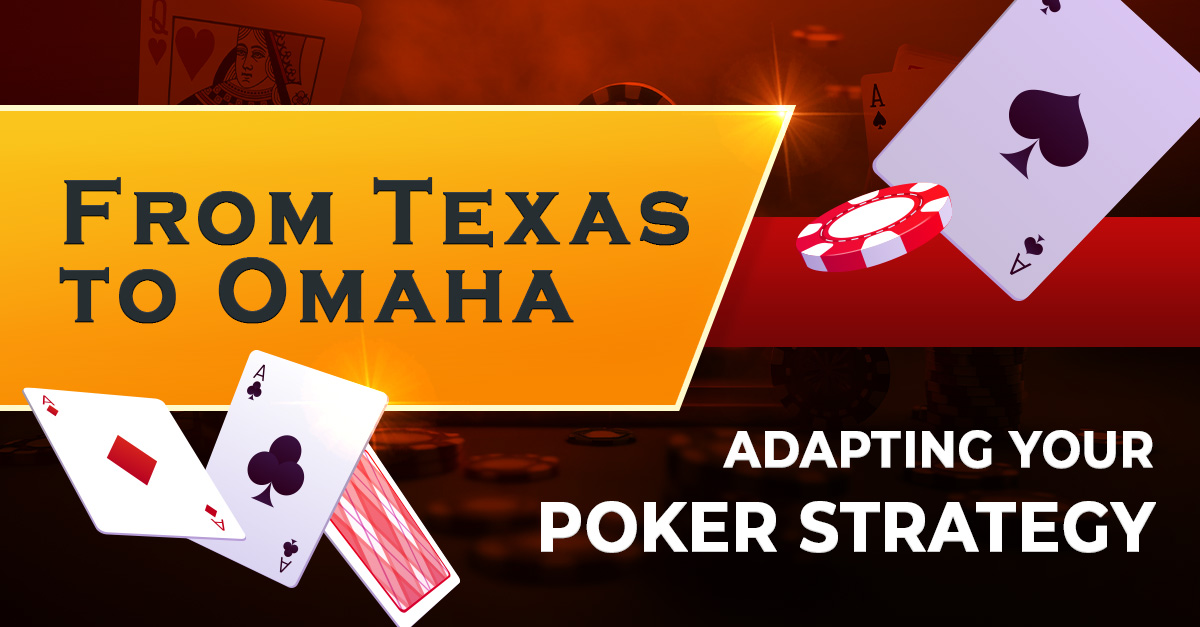Poker aficionados are well-acquainted with the Texas Hold’em variant, but venturing into the dynamic realm of Omaha Poker introduces a fresh set of challenges and opportunities. As players transition from the familiar landscapes of Texas Hold’em to the strategic landscapes of Omaha, adapting one’s poker strategy becomes paramount. In this exploration, we’ll dissect the nuances of Omaha Poker, uncovering the key differentiators and offering insights into how players can adapt their strategies for success.
1. Omaha Poker Unveiled: The Basics of Four-Card Dynamics
Unlike Texas Hold’em, where players are dealt two private cards, Omaha ups the ante with four hole cards. Dive into the dynamics of playing with four cards, understanding how this alteration impacts hand selection, community card relevance, and overall gameplay.
2. Building Blocks of Success: Starting Hand Selection in Omaha Poker
Explore the intricacies of starting hand selection in Omaha Poker, where the abundance of hole cards opens up a myriad of possibilities. Delve into the criteria for evaluating the strength of starting hands and making informed decisions that set the stage for success.
3. Navigating the Flop, Turn, and River: Omaha Poker
Unravel the significance of community cards in Omaha Poker. From the flop to the river, each stage introduces a new layer of complexity, influencing hand strength, strategic betting, and the overall narrative of a hand.
4. The Power of Position: Strategic Advantages in Omaha
Positional awareness takes center stage in Omaha, offering strategic advantages that can shape the outcome of a hand. Analyze how players can leverage their position at the table to optimize decision-making and capitalize on opponents’ vulnerabilities.
5. Embracing Pot Limit: Betting Dynamics in Omaha Poker
Pot Limit Omaha (PLO) introduces a betting structure that contrasts with the fixed limits of Texas Hold’em. Delve into the nuances of Pot Limit, exploring how this dynamic betting format impacts strategic considerations, pot odds, and player interactions.
6. Multiway Madness: Navigating Omaha’s Action-Packed Scenarios
Omaha poker often involves multiple players in each hand, leading to multiway pots and intricate scenarios. Examine the challenges and opportunities presented by multiway action, addressing the art of reading opponents and making calculated moves in crowded pots.
7. The Art of Bluffing: Balancing Deception and Risk in Omaha
Bluffing in Omaha poker requires finesse and an acute understanding of opponents’ likely holdings. Explore the art of bluffing in this variant, considering the risks and rewards associated with deception, and identifying opportune moments to execute well-timed bluffs.
8. Drawing Hands: Maximizing Potential in Omaha Poker
Drawing hands play a pivotal role in Omaha, where the abundance of hole cards opens up numerous drawing possibilities. Examine how players can identify and maximize the potential of drawing hands, making informed decisions based on the evolving nature of the hand.
9. The Transition Game: Adapting Strategies from Texas Hold’em
For players accustomed to the strategic nuances of Texas Hold’em, transitioning to Omaha poker requires a shift in mindset. Explore key adjustments needed to navigate the transition successfully, from reevaluating hand values to embracing the complexities of four-card dynamics.
10. Tackling Variance: Understanding Swings in Omaha Poker
Omaha’s dynamic nature introduces variance, leading to larger swings in outcomes. Delve into the concept of variance in Omaha Poker, understanding how players can manage fluctuations in luck and maintain a steady, resilient approach to the game.
11. Cracking the Code: Advanced Strategies for Omaha Success
As players grow more adept at Omaha Poker, advanced strategies become invaluable. Uncover nuanced tactics, such as reading opponents’ range effectively, incorporating game theory, and adapting strategies based on evolving table dynamics.
12. The Omaha Mindset: Cultivating a Strategic Approach to the Game
Cultivate the Omaha mindset—a strategic approach that balances aggression, adaptability, and a keen awareness of the game’s fluid dynamics. Explore how players can develop a mindset that aligns with Omaha’s intricacies, fostering long-term success at the tables.
13. Online Omaha: Navigating the Virtual Landscape
With the rise of online poker platforms, mastering Omaha poker extends to the virtual realm. Examine how the transition to online play impacts the dynamics of Omaha Poker, from adapting to faster-paced action to utilizing digital tools for strategic advantage.
14. Hand Reviews and Analysis: Learning from Omaha Poker Sessions
Reviewing hands is a crucial component of skill development in Omaha. Explore effective strategies for post-session hand reviews, leveraging insights gained to refine strategies, identify patterns, and continuously elevate one’s gameplay.
15. Community Engagement: Growing as an Omaha Poker Player
The journey in Omaha Poker is not solitary; the community plays a vital role in growth. Discover avenues for community engagement, from forums and discussions to seeking mentorship, as players share experiences, insights, and collectively contribute to the evolution of their Omaha strategies.
In the ever-evolving landscape of poker, the transition from Texas hold’em to Omaha represents a thrilling expansion of possibilities. By dissecting the nuances of Omaha Poker and adapting strategies accordingly, players can embark on a strategic journey that opens doors to new challenges, heightened excitement, and ultimately, continued success at the poker tables.
